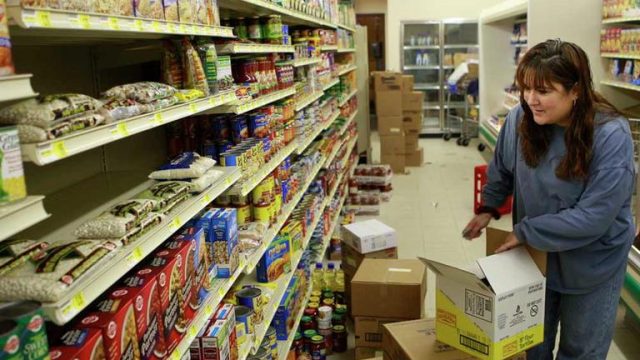Small Town Grocery Stores Don’t Need Government Assistance, They Need Better Business Models

“An interim committee of the North Dakota Legislature will study how food gets into rural areas and how the system can be improved,” reports my colleague Jenny Schlecht
She’s referring to SCR4013 (read it below) introduced by Senator Jim Dotzenrod (R-Wyndmere), and co-sponsored by Senator Jerry Klein (R-Fessenden) who is a retired grocery store owner and past chairman of the state Grocers Association. Backing the bill is the state’s rural electrical cooperatives which has started its own initiative to look at the problem.
The resolution asserts that North Dakota has “lost 15 percent of its grocery stores in towns with populations of fewer than 2,100 people” since 2013 and that “small profit margins in the grocery store business make it difficult for store owners to keep up with building and infrastructure needs.”
I don’t doubt that these things are true.
The resolution also alleges that “a considerable number of the state’s population drive more than 10 miles to reach a grocery store that offers fresh milk, bread, meat, fruits, and vegetables” and that there is “a strong negative correlation between the distance people drive for food and those people’s health.”
[mks_pullquote align=”right” width=”300″ size=”24″ bg_color=”#ffffff” txt_color=”#000000″]…we need to recognize that the demise of rural grocery stores is being driven by the individual choices North Dakotans are making. How far do we want to go trying to fight those choices?[/mks_pullquote]
Ten miles seems like a threshold designed to inflate the problem, and while access to healthy food is certainly important, I’m not sure it’s as important a variable in a given individual’s health as the grocery story industry might like us to believe.
Still, the resolution passed, and we’re going to study how to possibly make rural grocery stores a more sustainable business model. Which is not something we should be adverse to. If there are obstacles in the way of these business in the form of unnecessary regulation, or too-burdensome fees or taxation, by all means let’s look at reforms.
But we need to recognize that the demise of rural grocery stores is being driven by the individual choices North Dakotans are making. How far do we want to go trying to fight those choices?
More and more citizens are choosing to live in larger cities, as opposed to the state’s smaller communities. This means a smaller customer base for rural retailers, and a tougher business environment. What’s more, many of those who continue to live in the smaller communities choose to do their shopping (or, at least, a very large portion of it) in the larger communities where things like prices and selection might be better.
You and I can think what we want of these decisions, but as a practical matter of public policy how do you get around them? Are we to begin subsidizing stores that are failing because of the choices the shopping public are making? Should taxpayer resources be used to prop up business models that aren’t working?
What rural grocers probably need is a better business model. Maybe something which leverages the internet to allow customers to put in orders for groceries and pick them up locally. Or maybe something along the lines of a community-owned, cooperative-style store that allows those who choose to pay a membership fee to help keep a store open. Maybe the fee gives them certain discounts or privileges non-members don’t get, plus they get the convenience of keeping a store open near them.
I’m certain people more familiar with the business could come up with ideas even better than these.
I love small town North Dakota. I want to see these communities thrive. But it would be a mistake to spend taxpayer dollars trying to prop up tired, failing ways of doing things in the face of a changing market.
These grocers don’t need bailouts. They need a better way of doing things. I worry, though, that the pursuit of the former might limit willingness to consider the latter.
Here’s the full resolution.
[scribd id=413652601 key=key-tz3GLll2Yrm3eL1I1a2B mode=scroll]




